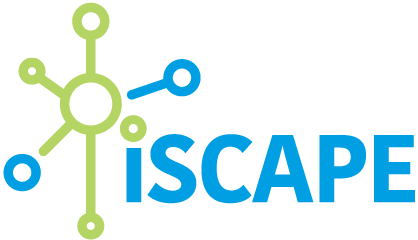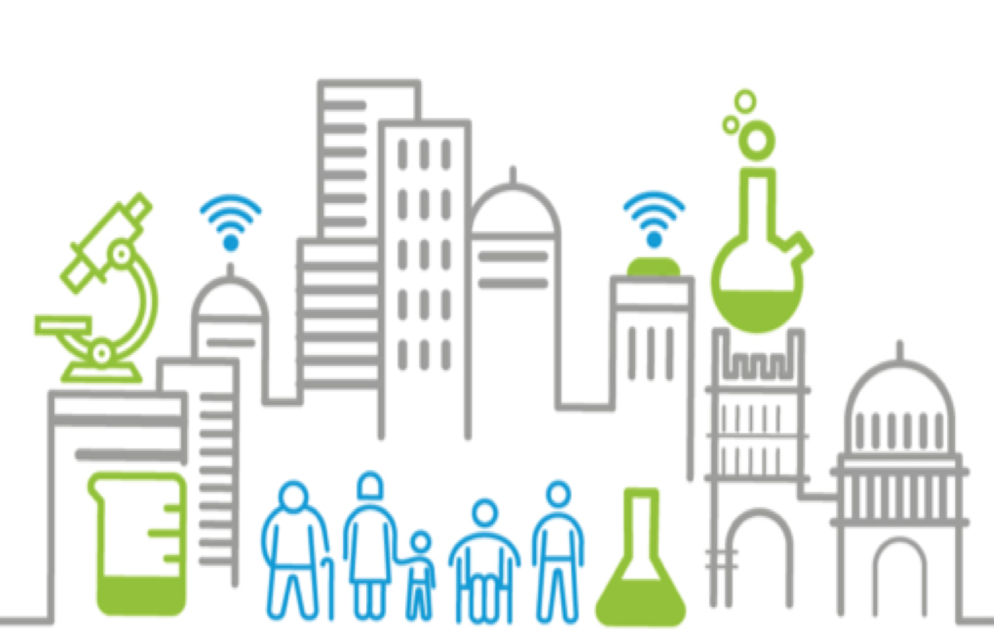The iSCAPE project presented on the 8th of November, in Dublin, the key results on air pollution control and monitoring developed through the project.
The fully booked one-day event, that saw the participation of professionals, policy-makers, and researchers, allowed project partners to present the results of three years of research and hands-on experience in reducing urban air pollution, and the negative impacts of climate change, through passive control systems, citizen engagement, behavioural change, and the low-cost sensors developed through the project. As highlighted by the iSCAPE Project Coordinator, Dr Francesco Pilla of University College Dublin: “It was exciting to share the key project results and findings for the improvement of air pollution control. Our solutions were developed in each iSCAPE Living Lab in a cooperative way with a wide range of stakeholders. This cross-fertilization of ideas and skills allowed us to develop and pilot solutions to air pollution that are human centred and account for the feedback and needs of local communities and local authorities”.
Hans-Guido Mücke, air quality and health scientist of the WHO Collaborating Centre for Air Quality Management and Air Pollution Control in Berlin, keynote speaker of the event added “The majority of people living in the 53 Member States of the WHO European Region are living in urban environments where citizens are frequently exposed to levels of air pollution exceeding the Air Quality Guideline values of WHO. Air pollution in cities is mainly based on fossil fuel emissions by urban activities, such as energy production, industrial activity, heating and transport. The project iSCAPE explored some really encouraging approaches to tackle the air pollution problem in urban agglomerations. However, the smartest control of air pollution is to reduce avoidable emissions wherever possible to protect health and climate through active and passive abatement approaches, and behavioural changes”.
Case studies from the six European cities that participated in the iSCAPE project were presented as well as recommendations on a wide variety of passive control measures for air pollution exposure (and climate change adaptation), starting from the use of green infrastructure in the built environment, to photocatalytic coating, to urban design and behavioural change considerations. As highlighted by Professor Prashant Kumar, project partner from the University of Surrey, that led the iSCAPE case study discussions “A close engagement of the project teams with public and local stakeholders allowed both to test solutions in the real-life conditions and also their uptake via guidance documents and publicly available tools for free use. This way we successfully completed a loop of conception to completion, leaving a legacy of research and impacting positively current practices, policies and the public.”
The event highlighted the importance of bringing together diverse stakeholders to enhance the collaboration towards the common goal of improving air quality. The event’s panel of experts shared their insights on the use of Passive Control Systems for healthier cities as well as the future of air pollution control and the role of technology and people.
Richard Baldauf, Senior Research Engineer, United States Environmental Protection Agency (USA)“The air pollution mitigation strategies developed and evaluated in the iSCAPE project will have far reaching impacts not just in Europe but across the world in improving urban air quality and public health”
Presentations delivered during event can be found below (THIS SECTION IS BEING UPDATED)
iSCAPE: The Journey Has Just Begun (Dr Francesco Pilla iSCAPE coordinator) (pdf, 47MB)
Presentation by Mirjam Witschke – Project Adviser, H2020 Programme, EASME, European Commission (Brussels) (pdf, 1.4MB)
iSCAPE Living Labs (Katinka Schaaf – Future Cities Catapult) (pdf, 1.9MB)
iSCAPE Sensor Development (Oscar Gonzalez IAAC – Fablab Barcelona) (pdf, 9MB)
More info about the iSCAPE project final event
The event took place on 8 November 2019 (08:30 – 17:30 followed by reception) at The Royal Dublin Society and saw the attendance of 105 participants (fully booked)
The agenda of the event can be found here: https://www.iscapeproject.eu/wp-content/uploads/2019/10/AGENDA-FINAL-EVENT-3.pdf (pdf, 130 KB)

